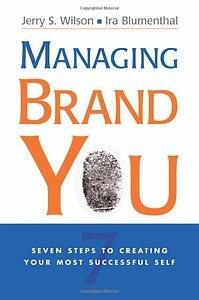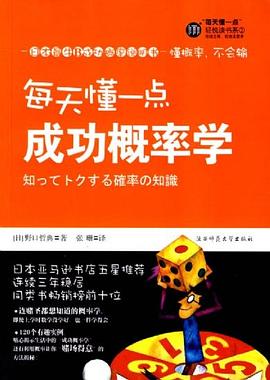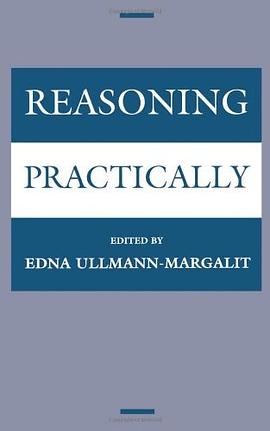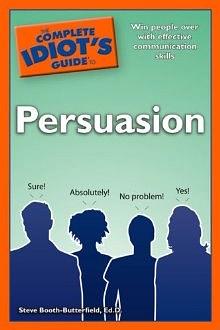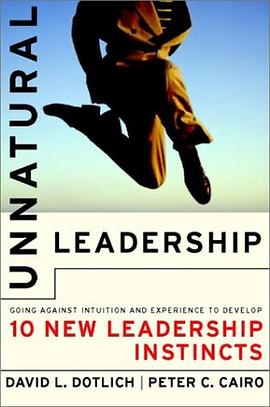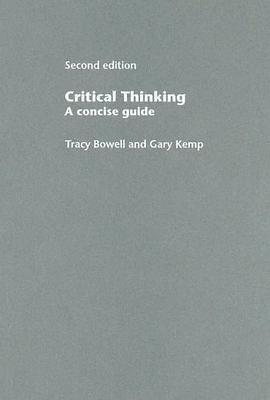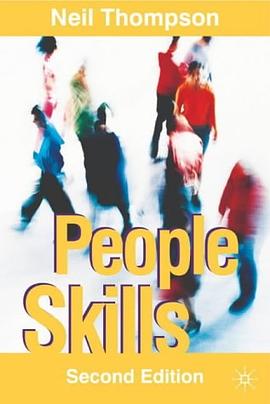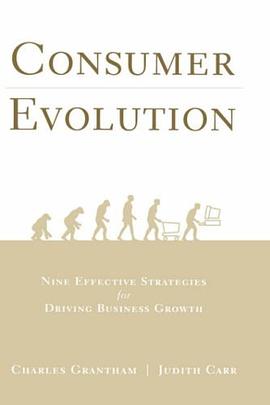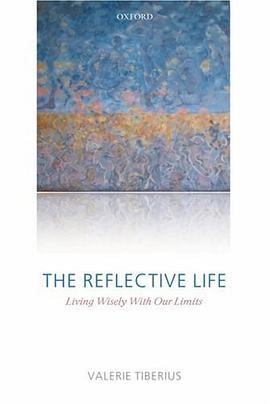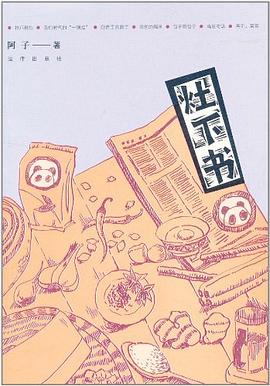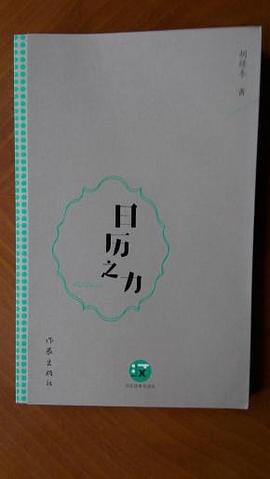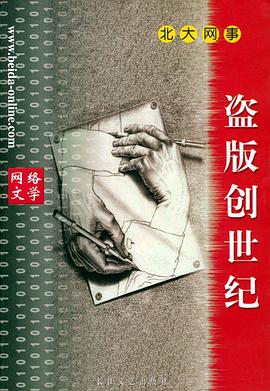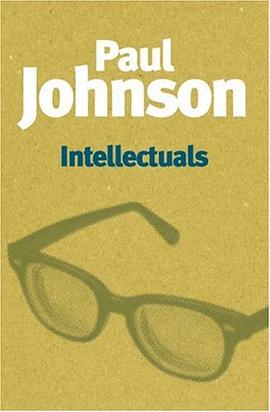

具体描述
Veteran political commentator, scholar and former editor of The New Statesman Paul Johnson has collected all the nasty, cruel and disgusting episodes in the lives of the mighty dead in order to question their "moral and judgmental credentials to give advice to humanity on how to conduct its affairs."
Intellectuals, according to Johnson, often possess a defining set of characteristic traits; they are lying, cheating, hypocritical, megalomaniacs who combine an abstract love of humanity with an exploitative, selfish and cruel treatment of those who were closest to them. Rousseau, Shelley, Marx, Ibsen, Tolstoy, Hemingway, Bertrand Russell, Brecht, Sartre, Lillian Hellman, Norman Mailer and Kenneth Tynan are put under the spotlight and damned as moral exemplars and truth-tellers while Edmund Wilson, Evelyn Waugh and Orwell provide the necessary foil of intellectual integrity.
This is a voyeuristic, gossip-mongering, ruthless and completely compelling book that leaves a bad taste in the mouth if you consume it at one sitting. Fortunately--since it's a collection of short biographical essays or exposès one can dip in where one likes. Intellectuals is well researched and has the polished concision one might expect from a veteran journalist and scholar. It also has the advantage of dealing with subject matter that is fascinating in itself--the extravagant personalities and spectacular immoralities of some of our most revered figures. Intellectuals doesn't always work as dispassionate intellectual history--for instance the overview of intellectual trends since the 1960s in the final chapter "The Flight of Reason" seems forced--but as a set of exposès it is splendid. --Larry Brown
作者简介
Paul Johnson, who was born in 1928, has written over forty books and is one of Britain's leading historians. A former editor of the New Statesman, he is a frequent contributor to newspapers throughout the world. His book Modern Times has been translated into thirty languages; Intellectuals has been translated into twenty languages. His History of Christianity and History of the Jews are standard works in five continents. His other books include The Offshore Islanders, The Birth of the Modern: World Society 1815-1830 and A History of the American People. He lives in London and Somerset.
目录信息
读后感
之前看了两章,今晚继续,保罗·约翰逊的【知识分子】,眼中一片悲凉。作为文字的生产者,他们都热爱抽象的人,但大多并不能延伸到任何一个具体的人,当然,除了自己。他们热衷与观察这个社会和之间的人,包括自己,带着浓厚的主观色彩,不可否认,正是这些主观的东西让他们的...
评分 评分一 人性 约翰逊对这些臭名昭著的知识分子作了一份详细的考察,他们身上固然有知识分子一些特有的毛病:自大、虚荣、漠视他人、自我中心等等,但如果全部视为他们的问题,或者只有他们存在问题,是否有失偏颇? 约翰逊应该再写一本《大众》或《人性》,与之对照,看看这些臭名...
评分保罗·约翰逊以近乎八卦的方式,更多的是通过对私生活的描写,对历史上的一些大师进行了褒贬(当然主要是贬斥和批判)。让我们来看看这个大师的名单:卢梭、雪莱、列夫·托尔斯泰、萨特、威尔逊、高兰茨、海明威……每个人都有专门一章,捎带着被品评的,还有拜伦、狄德罗等。 ...
评分刚读毕《知识分子》(保罗·约翰逊著),国内发行本缺关于马克思的那一章,网上有译文。 作者认为知识分子应为本世纪那些造成巨大社会灾难的计划负责,作者对一些著名知识分子追名逐利、言行不一进行了揭露(从学术看很难进行事实反驳),这是本书的价值之一。但是作者选取的十...
用户评价
《Intellectuals》这本书,让我对“知识分子”这一群体有了前所未有的认知。我原本以为会读到一些关于理论家们如何构建思想体系的枯燥记述,但事实恰恰相反,作者用一种极其生动和富有洞察力的方式,将那些思想的火花和人物的命运交织在一起。我特别欣赏作者在处理历史细节和人物情感上的平衡,他能够将那些宏大的历史背景和复杂的人际关系,以一种引人入胜的方式呈现在读者面前。书中所描绘的知识分子,不再是遥不可及的符号,而是有血有肉、有挣扎、有选择的个体。我记得其中关于某个时期知识分子如何面对社会压力的论述,让我深受触动,也让我对“思想的自由”有了更深的理解。阅读这本书,不仅仅是获取知识,更重要的是,它让我开始重新审视“思考”的意义,以及知识分子在推动社会进步中所扮演的关键角色。我感到自己的思维模式受到了极大的启发,看问题的角度也变得更加深刻和全面。
评分《Intellectuals》这本书,从书名上看,我以为会是关于哲学、政治学等宏大叙事的探讨,或许会涉及一些晦涩难懂的理论。然而,实际阅读体验却完全颠覆了我的想象。作者用一种非常平易近人,同时又极具深度的笔触,将那些复杂的思想和人物故事娓娓道来。我被那些书中描绘的人物深深吸引,他们不再是刻板的“思想家”形象,而是有着丰富情感和复杂经历的个体。我尤其惊叹于作者对不同历史时期知识分子群体内部多样性的刻画,他们之间的争论、合作,以及他们在社会转型时期的不同选择,都展现得淋漓尽致。这本书让我意识到,知识分子的价值不仅仅在于他们的理论创新,更在于他们对社会问题的关注、对真理的追求以及在各种压力下保持独立思考的能力。我感到自己的思维方式得到了极大的启发,看问题的角度也变得更加多元和深入。这本书让我对“思想”的力量有了更直观的认识,也对知识分子这个群体有了更深切的理解和尊重。
评分这本《Intellectuals》的书名本身就带着一种引人遐想的意味,仿佛能够窥探到那些我们视为智慧灯塔的人们的内心深处。我拿到这本书的时候,心情是既期待又略带忐忑的,期待的是能够从中获得一些关于思想、关于社会、关于人类自身更深刻的理解,而忐忑则是担心它会过于学术化,或者太过晦涩,让我望而却步。然而,随着翻阅的深入,我逐渐被一种沉浸式的阅读体验所吸引。作者似乎有一种魔力,能够将那些抽象的概念、复杂的人物关系、以及看似遥远的时代背景,用一种既严谨又生动的笔触描绘出来。我尤其欣赏的是,在探讨那些宏大议题的同时,作者并没有忽略个体在历史洪流中的挣扎与抉择。那些名字,那些思想,不再是冰冷的书本上的符号,而是活生生的、有血有肉的个体,他们有过困惑,有过迷茫,也有过辉煌。这本书让我对“知识分子”这个群体有了更立体、更包容的认识。我开始思考,究竟是什么样的环境、什么样的经历,造就了他们的思想?他们的贡献不仅仅体现在言论和著作上,更在于他们对真理不懈的追求,以及在黑暗中点燃希望的勇气。阅读这本书,就像是在与不同时代的思想巨匠进行一场跨越时空的对话,每一次翻页,都像是叩开了一扇新的大门,让我看到更广阔的世界,也更深入地审视自己。
评分第一次翻开《Intellectuals》,我脑海中浮现的是一些严肃的学术讨论,或者是一些枯燥的人物传记。但随着阅读的深入,我发现这本书所带来的体验完全超出了我的预期。作者以一种非常生动、甚至带有文学色彩的笔触,描绘了不同时代、不同背景下的知识分子群体的生活、思想和挣扎。我常常在阅读的过程中,被那些鲜活的人物形象所打动,他们不再是冰冷的概念,而是有血有肉、有情感、有追求的个体。我特别欣赏书中对知识分子在社会变革中所扮演角色的探讨,作者并没有简单地将其视为时代的“先知”或“殉道者”,而是深入分析了他们在复杂社会关系中的定位、困境以及他们自身思想的局限性。这使得我对“知识分子”这个群体的认识更加立体和真实。阅读这本书,让我对“思想”本身有了更深的理解,它不仅仅是文字的堆砌,更是个体生命体验、社会现实以及时代精神的深刻反映。我感到自己的视野被极大地拓展了,也开始更深入地反思知识在社会中的作用以及我们作为个体的责任。
评分我承认,一开始我被《Intellectuals》这个名字所吸引,是因为我对“知识分子”这个标签本身就充满了好奇和审视。我总是试图理解,那些被认为是“思想者”的人,究竟是如何思考的?他们的思想是如何形成的?这本书并没有辜负我的期望。作者在大量的资料和严谨的逻辑支撑下,构建了一个宏大的思想图景。我尤其欣赏的是,作者在探讨知识分子与权力、知识分子与大众、知识分子与自身身份认同等议题时,所展现出的深刻洞察力。那些历史上的案例,那些人物的命运,都成为了作者论证观点的有力支撑。我常常在阅读的过程中,会不自觉地将书中所描绘的场景与当下的社会状况进行对比,思考今天的知识分子又扮演着怎样的角色。这本书并没有简单地赞颂或批判,而是提供了一个更全面、更 nuanced 的视角。它让我意识到,成为一名“知识分子”并非易事,它需要勇气、责任感,以及对真理不懈的追求。每一次阅读,都像是在进行一次深度访谈,我从作者的笔触中,看到了知识分子在不同时代背景下的生存状态、思想困境以及他们所能发挥的作用。这本书不仅丰富了我的知识,更重要的是,它启迪了我对自身思考和价值的理解。
评分《Intellectuals》这本书给我的感觉,与其说是在阅读,不如说是在经历一场精神上的远足。我并不是一个在任何特定领域都有深厚造诣的读者,但这本书的魅力就在于它能够触及到最广泛的读者群体,引发最普遍的共鸣。作者在处理那些庞杂的信息时,展现出了惊人的组织能力和叙事技巧。我常常在阅读一段后,会停下来,反复咀嚼其中的某个观点,或者回味某个生动的细节。这本书并没有提供一成不变的答案,而是引导我去提出自己的问题,去探索更多的可能性。我记得其中有关于某个历史时期知识分子群体如何面对社会变革的论述,让我对当时的社会思潮以及个体在其中的作用有了全新的理解。那段描述,仿佛将我置身于那个动荡的年代,亲历着思想的碰撞、理想的破灭与重塑。书中的人物,即便我之前素未谋闻,也因为作者的细腻刻画,变得鲜活起来,他们的思想轨迹,他们的情感波动,都清晰可见。这不仅仅是一本关于“知识分子”的书,它更是一本关于人类思想如何发展、如何影响世界,以及如何在个体与集体之间寻求平衡的书。我感到自己的思维方式受到了启发,看问题的角度也变得更加多元化,这正是阅读的巨大价值所在。
评分当我拿到《Intellectuals》这本书时,我曾犹豫过,因为“知识分子”这个词汇在我脑海中往往与严肃、遥远挂钩。但真正翻开书页,我却被一种意想不到的魅力所吸引。作者的叙事方式非常独特,他并没有采用枯燥的理论堆砌,而是将历史的厚重感与人物的鲜活性巧妙地融合在一起。我尤其着迷于作者对知识分子内心世界的描绘,他们如何在时代洪流中保持清醒,如何在复杂的社会关系中寻找自己的位置,以及他们在面对困境时所展现出的勇气和智慧。这本书让我对“知识分子”的理解不再局限于某个狭隘的定义,而是看到了这个群体内部的丰富多样性,以及他们在不同历史时期所扮演的多元角色。我常常在阅读过程中,会不自觉地将书中所描述的情境与现实社会进行对比,思考当下的知识分子又该承担怎样的责任。这不仅仅是一本关于知识分子的书,它更像是一面镜子,映照出我们对思想、对社会、对个体价值的深刻反思。
评分从《Intellectuals》这本书的书名来看,我原本以为会是一本相当严肃、甚至有些枯燥的学术著作,毕竟“知识分子”这个词汇本身就带着一种距离感。然而,事实证明我的预判是错误的。作者的写作风格非常流畅且富有感染力,他能够将那些看似宏大、复杂的思想史和人物故事,用一种极其引人入胜的方式呈现出来。我惊喜地发现,这本书不仅仅是关于知识分子群体本身的介绍,更深入地探讨了他们在不同历史时期所扮演的角色、所面临的挑战以及他们对社会产生的深远影响。我尤其喜欢作者在分析某个历史事件时,对知识分子群体内部不同声音和立场的细致描绘,这让我看到,即使是身处同一个群体,他们也会因为不同的经历、不同的立场而产生思想的碰撞,这种真实感非常难得。这本书让我对“知识分子”的定义有了更宽广的理解,不再局限于某个特定的职业或身份,而是更看重他们那种独立思考、批判精神以及对社会责任的担当。我感到自己的视野被极大地拓宽了,也对人类思想的演进有了更深层次的认识。
评分《Intellectuals》这本书,从书名上来讲,应该是一本探讨“思想家”们的读物,我原本抱持着一种学习的态度去阅读,希望能从中学到一些关于思想史的知识,或者了解一些重要的思想人物。然而,在阅读过程中,我被作者那种独特的叙事方式深深吸引。他并没有简单地罗列事实或理论,而是将每一个思想家的故事都讲得跌宕起伏,仿佛一个个鲜活的个体呈现在我眼前。我特别欣赏作者对于人物内心世界的挖掘,以及对于他们所处时代背景的细致描绘。这让我不仅仅是了解了他们的思想,更能理解他们思想形成的原因,以及他们在特定历史条件下所做的选择。这本书让我对“知识分子”这个群体有了更深的敬意,也让我意识到,他们的思想不仅仅是抽象的理论,更是他们对生活、对社会、对人类命运深刻思考的体现。我感到自己的思考方式受到了启发,看待问题也变得更加全面和深刻。这本书不仅仅是一本关于知识分子的书,它更像是一部关于人类思想发展史的精彩画卷,让我受益匪浅。
评分《Intellectuals》这本书,对我而言,是一次意想不到的心灵旅程。我通常不会主动去阅读那些冠以“精英”或“思想”字眼的书籍,总觉得会有些距离感。然而,这本书的叙事风格却非常吸引人。作者并没有采用高高在上的姿态,而是以一种非常亲切、甚至可以说是带有温度的方式,来讲述那些关于思想家们的故事。我被那些鲜活的人物形象深深吸引,他们不再是教科书上的几个名字,而是有血有肉、有情感、有挣扎的个体。我尤其记得其中关于某位作家如何在政治高压下坚持创作的段落,那种坚韧和毅力,让我为之动容。这本书让我对“知识分子”这个群体的多样性有了更深的认识。他们不仅仅是学者,也可能是艺术家、作家、评论家,他们的思想形式和表达方式千差万别,但他们都对社会有着某种程度的责任感和影响力。阅读这本书,让我开始反思,在当今这个信息爆炸的时代,我们作为普通人,应该如何去辨别信息、如何去思考,以及我们是否也应该承担起一定的思想责任。这本书并没有给我提供现成的答案,而是激发了我更多的思考,让我对“思考”本身有了更深刻的认识。
评分A good book! I like all those intellectuals better after knowing how normal they are.
评分A good book! I like all those intellectuals better after knowing how normal they are.
评分八卦大集……
评分A good book! I like all those intellectuals better after knowing how normal they are.
评分Intellect is the hamartia of men.
相关图书
本站所有内容均为互联网搜索引擎提供的公开搜索信息,本站不存储任何数据与内容,任何内容与数据均与本站无关,如有需要请联系相关搜索引擎包括但不限于百度,google,bing,sogou 等
© 2026 book.quotespace.org All Rights Reserved. 小美书屋 版权所有


